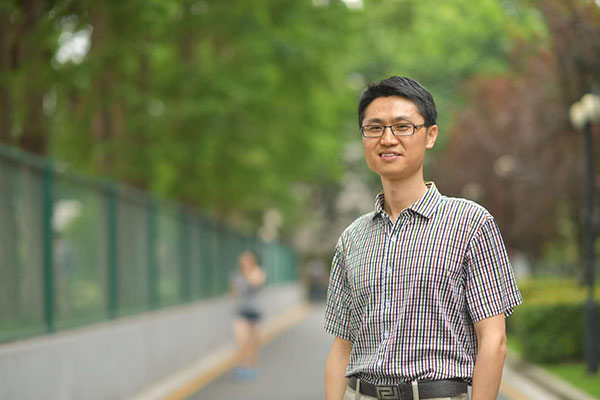







Dr. Wang Kejian
Professor
State Key Laboratory of Rice Biology
China National Rice Research Institute (CNRRI)
Address: No. 359, Tiyuchang Rd., Hangzhou 310006, P.R. China
Phone: +86-571-63370202
Fax: +86-571-63370202
E-mail: wangkejian@caas.cn
Education Background
Kejian Wang was received his Bachelor Degree of Agronomy from Yangzhou University, China in 2004, and PhD of Science from Institute of Genetics and Developmental Biology of Chinese Academy of Sciences in 2009.
Professional Experience
2009-2011 Research assistant, Institute of Genetics and Developmental Biology, Chinese Academy of Sciences, Beijing, China.
2012-2013 Research associate, Institute of Genetics and Developmental Biology, Chinese Academy of Sciences, Beijing, China.
2013-Present Professor, China National Rice Research Institute, Chinese Academy of Agricultural Sciences, Hangzhou, China.
Research Area
Apomixis is a reproductive process in plants where embryos develop directly from egg cells or other somatic cells without meiosis and fertilization, producing offspring genetically identical to the maternal parent. By retaining desirable traits and avoiding genetic recombination, apomixis offers transformative potential for agriculture. In-depth research into apomixis could turn the theoretical concept of "one-time hybridization, perpetual high yield" into reality, offering a breakthrough solution for sustainable agricultural development and global food security.
Our laboratory has pioneered the development of synthetic apomixis systems (Fix-series: Fix1 through Fix5) in hybrid rice. Building upon these foundational achievements, we are currently employing an integrated methodology combining forward genetic screening, CRISPR-Cas9 base-editing, and multi-dimensional omics (single-cell transcriptomics, spatial proteomics) to address three fundamental barriers in apomictic crop engineering:
1. Characterization of apomixis-related genes
We use forward genetics to identify novel genes for developing synthetic apomixis systems to achieve high induction efficiency while maintaining a normal seed setting rate.
2. Establishment of transgene-free apomixis systems
We modify apomixis vectors and incorporate gene-editing technologies to develop transgene-free apomixis strategies, laying the foundation for agricultural production.
3. Advancing hybrid breeding through apomixis
By replacing the current male sterility/restorer line system with apomixis technology, we expand the selection range of hybrid rice parental lines, thereby enhancing heterosis exploitation.
CNRRI Today
Copyright © 2014- China National Rice Research Institute